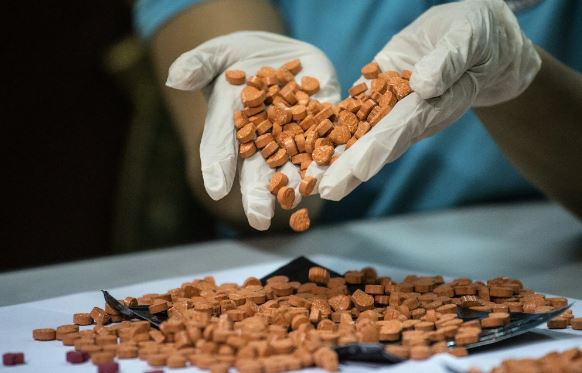The FDA raised significant concerns on Friday regarding the use of MDMA as a treatment for PTSD, highlighting flaws in a company’s studies that could hinder the approval of a treatment anticipated to aid those suffering from the condition.
The agency pointed out that bias may have influenced the studies because participants and therapists could easily identify who received MDMA versus a placebo. Additionally, the FDA noted “significant increases” in blood pressure and pulse rates that could lead to cardiovascular events.
These findings were part of a staff analysis prepared for an independent advisory panel meeting scheduled for Tuesday to review Lykos Therapeutics’ application for MDMA-assisted therapy. The concerns underscore the complex challenges facing regulators as they evaluate the therapeutic potential of MDMA, commonly known as Ecstasy, a drug traditionally linked to rave culture.
Approval would represent a major shift in the U.S.’s approach to psychedelic compounds, many of which the DEA classifies as illegal substances with no accepted medical use and high abuse potential. Proponents of MDMA therapy, including bipartisan lawmakers and various advocacy groups, argue that it could offer much-needed treatment for PTSD, especially for military veterans at high risk of suicide. Notably, no new PTSD therapy has been approved in over two decades.
David Olson, director of the U.C. Davis Institute for Psychedelics and Neurotherapeutics, remarked on the significance of MDMA’s potential approval, stating, “We really lack effective treatments, and people need help now.”
Amy Emerson, CEO of Lykos Therapeutics, defended the study data and design, acknowledging the challenges of such complex research. She noted that “functional unblinding,” where study participants can discern whether they received the drug, often occurs in psychoactive drug trials.
A rejection would be a major setback for the burgeoning field of psychedelic medicine, which has attracted substantial private investment. This financial backing largely hinges on the approval of MDMA therapy, which the FDA designated for fast-track review in 2017. The FDA has similarly fast-tracked other psychedelics, including psilocybin for depression and an LSD-like substance for generalized anxiety disorder.
The criminalization of psychedelics in the 1970s stymied research that had shown promise in treating various psychiatric conditions. Recently, MDMA has garnered attention for its potential to significantly improve symptoms of anxiety, depression, substance abuse, and eating disorders when combined with talk therapy.
MDMA, an empathogen, increases feelings of empathy and social connectedness but is often mixed with other substances in recreational use, raising safety concerns. Despite potential cardiac risks, MDMA is considered non-addictive and has a well-established safety profile in its pure form.
The FDA typically follows its advisory panel’s recommendations and is expected to make a formal decision by mid-August. If approved, MDMA therapy might come with strict usage controls and additional studies to confirm its efficacy.
Lykos’ recent studies involved approximately 200 patients undergoing three eight-hour therapy sessions, with MDMA or placebo administered. Preparation and follow-up sessions were also part of the protocol. Results showed significant symptom reduction for over 86% of those who received MDMA, with 71% no longer meeting PTSD criteria, compared to 69% improvement and 48% recovery in the placebo group.
Jesse Gould, an Army Ranger veteran and advocate for psychedelic treatments, emphasized the urgent need for new PTSD therapies, citing high veteran suicide rates.
The FDA has scheduled nearly two hours for public comments, likely highlighting experiences and concerns from study participants and researchers. Approval would require careful regulation to prevent misuse and ensure patient safety, akin to the restricted use of Spravato, a ketamine nasal spray.
Approval could lead to MDMA’s reclassification from a Schedule 1 controlled substance, involving further steps from federal health authorities and the Justice Department. The DEA might also set production quotas for MDMA ingredients.
Despite criticisms of Lykos’ studies, the FDA acknowledged participants’ rapid and durable improvement in PTSD symptoms. Concerns about bias and ethical breaches in the studies persist, with calls for rigorous oversight if MDMA is approved.
Specialists in psychedelic medicine argue that the momentum for research and public support is unstoppable, regardless of the FDA’s decision. Bob Jesse, a researcher who helped establish the psilocybin team at Johns Hopkins University, noted the increasing acceptance of psychedelics, stating, “Psychedelics are now passing the giggle test.”

